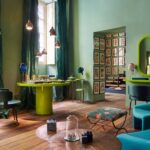When it comes to home interiors, there’s no one-size-fits-all approach. Your space should reflect not just aesthetics but your personality, lifestyle, and emotional needs. In recent years, two design styles have dominated the interior design scene—minimalism and maximalism.
While minimalist interior design emphasizes simplicity, space, and function, maximalist decor celebrates boldness, color, and personality. But how do you know which is right for you?
In this comprehensive guide, we’ll dive deep into both styles, comparing their principles, aesthetics, and benefits. We’ll also help you evaluate your personality type to determine which interior design style truly suits you.
What Is Minimalist Interior Design?
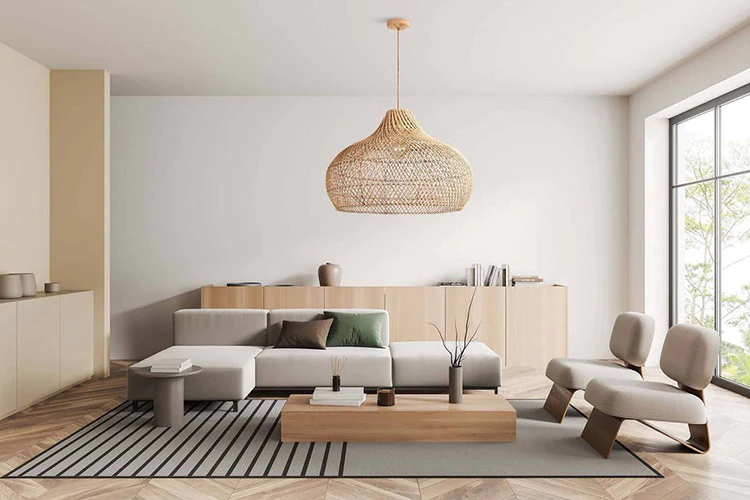
The Philosophy
Minimalism is a design philosophy that embraces the idea of “less is more.” Inspired by Japanese Zen traditions and modernist art movements, minimalism focuses on clarity, space, and functionality. It strips away the unnecessary and prioritizes intentional living.
Key Features of Minimalist Interiors
Neutral Color Palette: Whites, greys, beiges, and blacks dominate.
Clean Lines: Furniture with straight edges and sleek surfaces.
Open Spaces: Minimal furniture allows the room to breathe.
Decluttered Environment: Every item has a purpose.
Natural Light: Spaces are bright and airy.
Why Choose Minimalism?
Promotes mental clarity and emotional calm.
Easier to clean and maintain.
Encourages mindful consumption.
Works well in small spaces or urban apartments.
What Is Maximalist Interior Design?
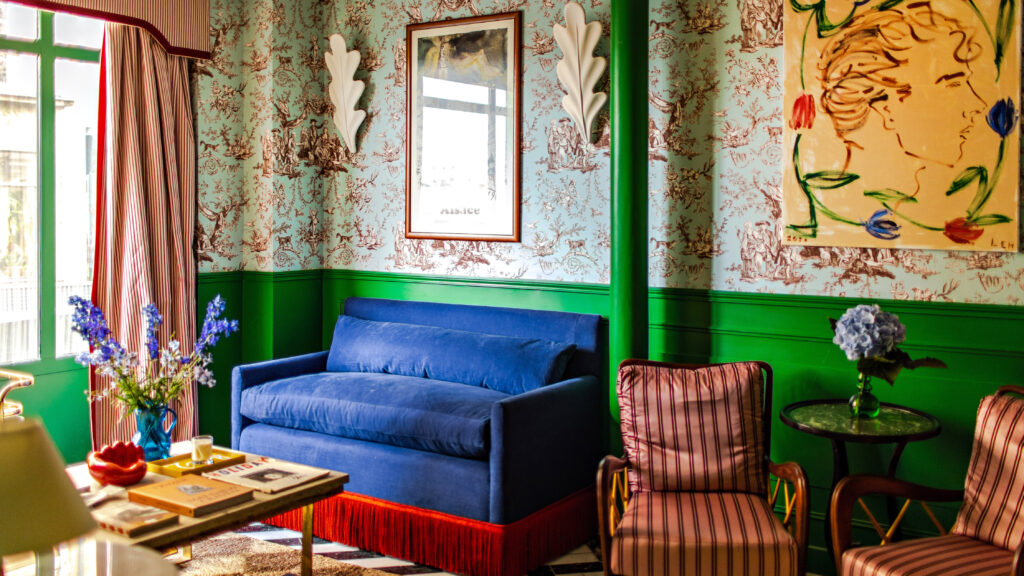
The Philosophy
Maximalism, on the other hand, is the art of “more is more.” It embraces abundance, diversity, and creativity. Far from cluttered chaos, a well-executed maximalist home is an expressive celebration of color, pattern, texture, and personality.
Key Features of Maximalist Interiors
Vibrant Color Schemes: Bold blues, pinks, yellows, and jewel tones.
Layering Textures & Patterns: Rugs, wallpapers, upholstery all tell stories.
Eclectic Decor: Mixing vintage with modern, east with west.
Gallery Walls: Showcasing art, photos, books, and memorabilia.
Personal Expression: Sentimental objects are proudly on display.
Why Choose Maximalism?
Encourages creativity and self-expression.
Perfect for collectors or those who love variety.
Invites warmth and comfort into large spaces.
Suits those with strong personalities and story-rich lives.
Minimalist vs. Maximalist Interiors: A Style Comparison
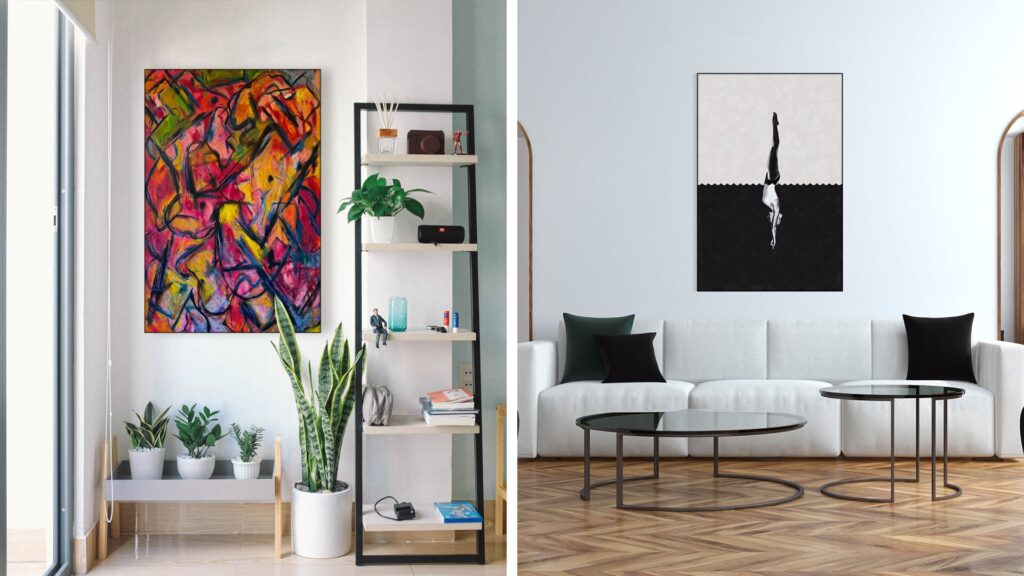
| Feature | Minimalist | Maximalist |
|---|---|---|
| Color Palette | Neutral, monochrome | Bright, bold, multi-colored |
| Decor Items | Few, functional | Many, sentimental or artistic |
| Visual Aesthetic | Clean, calm, spacious | Busy, lively, curated chaos |
| Storage Philosophy | Hidden storage, minimal clutter | Open shelves, visible collections |
| Materials | Natural wood, steel, glass | Velvet, silk, mixed materials |
| Overall Vibe | Modern, serene | Eclectic, vibrant |
What Does Your Personality Say About Your Style?
Minimalist Personality Traits
You enjoy order and structure.
You’re often described as organized or disciplined.
You get overwhelmed in visually busy environments.
You prefer quality over quantity.
You are inspired by nature, silence, and space.
If this sounds like you, minimalist interiors may help support your mental well-being and daily productivity.
Maximalist Personality Traits
You are creative, expressive, and artistic.
You draw energy from colors, patterns, and textures.
You’re a collector of stories, souvenirs, or art.
You thrive in stimulating environments.
You often want your space to tell your life story.
If this resonates with you, a maximalist design can become your joyful canvas for self-expression.
Pros and Cons of Each Style
Minimalist Interior Design
Pros:
Reduces stress and visual noise
Easier to clean and maintain
Timeless and versatile
Encourages intentional living
Cons:
May feel cold or sterile if overdone
Less room for personal expression
Can feel empty to some people
Maximalist Interior Design
Pros:
Allows deep self-expression
Rich and layered aesthetic
Invites warmth and storytelling
Great for large spaces
Cons:
Requires careful curation to avoid clutter
Can be overwhelming if poorly executed
Harder to clean and organize
How to Choose: Practical Tips
Evaluate Your Lifestyle
If you travel often or live in a small apartment, minimalism may suit your needs better.
If you love hosting guests or work in creative fields, maximalism might energize your space.
Consider Time & Energy
Minimalism requires discipline to maintain simplicity.
Maximalism needs regular upkeep to avoid visual overload.
Start with a Hybrid Approach
Try “minimalism with soul”—add a few bold pieces to a clean space.
Or “organized maximalism”—keep surfaces neat but walls expressive.
Think Long-Term
Which style will still feel good in 5 years?
Can you easily evolve or adapt it?
Blending the Two: The Rise of “Warm Minimalism” and “Curated Maximalism”
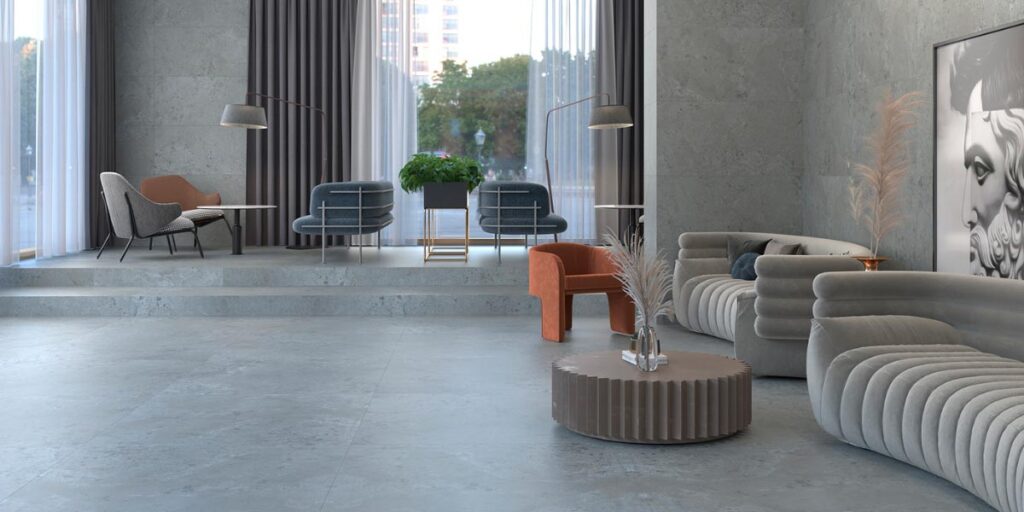
Interior designers are increasingly blending both styles to reflect real-life personalities. Warm minimalism adds organic textures and soft tones to sterile spaces. Curated maximalism is deliberate, not chaotic—filled with selected pieces that have meaning.
You don’t have to go to extremes. Design a space that reflects you.
Real-Life Examples
Case Study: The Mindful Minimalist
Sanya, a freelance writer, lives in a 1BHK apartment. Her minimalist home has white walls, a wooden desk, and a few plants. She says, “My space gives me clarity. I write better when the room is empty and quiet.”
Case Study: The Passionate Maximalist
Arjun, a photographer, turned his home into an art gallery. Bright rugs, photo walls, vintage cameras—everything has a story. “I feel inspired every time I walk into my living room,” he shares.
Trending in 2025: What’s Hot in Both Styles?
Minimalist Trends
Japandi (Japanese + Scandinavian fusion)
Smart, hidden storage
Textured walls in neutral tones
Organic materials like linen, rattan, and clay
Maximalist Trends
Mismatched gallery walls
Pattern-on-pattern (think florals with stripes)
Vintage revival – baroque mirrors, velvet sofas
Bold wallpapers and mural art
Final Thoughts: Your Home, Your Rules
Whether you’re drawn to the tranquility of minimalism or the vibrant personality of maximalism, the best interior style is one that feels like you. Your home should be a space where you feel safe, seen, and inspired.
Don’t get caught up in trends. Choose what makes you feel at home.

